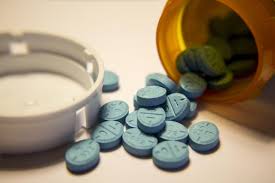Exploring Dextroamphetamine: Uses, Effects, and Safety
Dextroamphetamine is commonly used to treat attention deficit hyperactivity disorder (ADHD) and narcolepsy. It belongs to a class of drugs known as central nervous system stimulants. This section provides an in-depth understanding of what dextroamphetamine is and how it works.
Uses of Dextroamphetamine

Dextroamphetamine is primarily prescribed for two main purposes:
ADHD Treatment:
It’s a cornerstone in managing ADHD in both children and adults. By increasing certain neurotransmitters in the brain, dextroamphetamine helps improve focus, impulse control, and overall attention span.
Narcolepsy Management:
Dextroamphetamine is also used to treat narcolepsy, a sleep disorder characterized by excessive daytime sleepiness and sudden episodes of falling asleep. The medication promotes wakefulness and reduces the frequency of these episodes.
How Dextroamphetamine Works
Understanding how dextroamphetamine works in the body is crucial for comprehending its therapeutic effects and potential side effects. This section delves into the mechanisms of action.
Neurotransmitter Regulation
Dextroamphetamine primarily affects the levels of certain neurotransmitters in the brain, including dopamine and norepinephrine. These neurotransmitters play key roles in attention, impulse control, and wakefulness. Dextroamphetamine increases the release and blocks the reuptake of these neurotransmitters, leading to improved cognitive function and wakefulness.
Targeted Symptom Relief
For individuals with ADHD, dextroamphetamine helps alleviate the core symptoms, such as inattention, hyperactivity, and impulsivity. It enables individuals to concentrate better, follow tasks through to completion, and manage their impulses effectively.
Wakefulness Promotion
In the case of narcolepsy, dextroamphetamine promotes wakefulness by stimulating certain brain regions responsible for alertness. This reduces the likelihood of sudden and uncontrollable sleep episodes, allowing individuals to stay awake during the day.
Dextroamphetamine Variants and Formulations
Dextroamphetamine is available in various formulations, allowing healthcare providers to tailor treatment to individual needs. This section explores the different variants and delivery methods.
Immediate-Release vs. Extended-Release
Dextroamphetamine is available in both immediate-release (IR) and extended-release (ER) formulations. Immediate-release versions provide a rapid onset of action and may need to be taken multiple times daily. Extended-release formulations offer a sustained effect, often requiring just one daily dose.
Brands and Generics
Several pharmaceutical companies produce dextroamphetamine under different brand names. Additionally, generic versions are available, offering cost-effective alternatives. It’s important to discuss options with a healthcare provider to determine the most suitable choice.
Safe and Responsible Use of Dextroamphetamine
Safety is paramount when using dextroamphetamine. This section provides essential guidelines for the responsible use of this medication.
Medical Supervision
Dextroamphetamine should only be taken under the supervision of a qualified healthcare provider. A thorough medical evaluation is essential to assess the need for the medication, determine the appropriate dosage, and monitor its effects.
Dosage and Administration
The dosage of dextroamphetamine varies based on the individual’s condition, age, and response to the medication. It’s crucial to follow the prescribed dosage and administration schedule meticulously. Do not adjust the dosage without consulting your healthcare provider.
Potential Side Effects
Dextroamphetamine, like any medication, may have side effects. Common side effects include increased heart rate, dry mouth, and reduced appetite. Severe side effects are rare but can include chest pain and difficulty breathing. Any unusual or severe side effects should be promptly reported to a healthcare provider.
Risks and Precautions
Understanding the potential risks and taking necessary precautions is vital when using dextroamphetamine.
Dependency and Addiction
Dextroamphetamine has a potential for dependency and addiction, especially when not used as prescribed. It’s crucial to follow medical guidance closely and communicate any concerns about dependency with your healthcare provider.
Interaction with Other Medications
Dextroamphetamine may interact with other medications. Inform your healthcare provider about all medications, supplements, or herbal products you are taking to avoid potentially harmful interactions.
Special Considerations
For certain populations, such as pregnant individuals and those with a history of substance abuse, special considerations and precautions are necessary. Always discuss your medical history and any concerns with your healthcare provider.
FAQs about Dextroamphetamine:
Q: What is Dextroamphetamine, and what conditions is it used to treat?
A: Dextroamphetamine is a medication used to treat conditions like attention deficit hyperactivity disorder (ADHD) and narcolepsy. It helps improve focus and wakefulness.
Q: How does Dextroamphetamine work in the body?
A: Dextroamphetamine increases the levels of certain neurotransmitters in the brain, such as dopamine and norepinephrine. This enhances cognitive function and promotes alertness.
Q: Is Dextroamphetamine safe to use?
A: When used as prescribed and under medical supervision, Dextroamphetamine is generally safe. However, it should only be taken as directed by a healthcare provider.
Q: What are the common side effects of Dextroamphetamine?
A: Common side effects may include increased heart rate, dry mouth, reduced appetite, and difficulty sleeping. Severe side effects are rare but should be reported to a healthcare provider.
Q: Can Dextroamphetamine be addictive?
A: Dextroamphetamine has a potential for dependency and addiction, especially when misused. It should be taken only as prescribed.
Q: Are there any interactions between Dextroamphetamine and other medications?
A: Dextroamphetamine may interact with certain medications. It’s crucial to inform your healthcare provider about all the medications you are taking.
Q: How is the dosage of Dextroamphetamine determined?
A: The dosage of Dextroamphetamine is individualized based on factors like age, condition, and response to the medication. It should be prescribed by a healthcare provider.
Q: Can pregnant individuals use Dextroamphetamine?
A: Pregnant individuals should discuss the use of Dextroamphetamine with their healthcare provider. It may be prescribed when the benefits outweigh the risks.
Q: What precautions should be taken when using Dextroamphetamine?
A: Precautions include following the prescribed dosage, reporting any side effects, and informing your healthcare provider of your medical history and other medications.
Q: How can I ensure the responsible use of Dextroamphetamine?
A: To use Dextroamphetamine responsibly, always follow your healthcare provider’s instructions, never adjust the dosage on your own, and communicate any concerns with your healthcare provider.
Conclusion
Dextroamphetamine has proven to be a valuable medication in managing ADHD and narcolepsy. When used responsibly, under medical supervision, and by prescribed guidelines, it can significantly improve the quality of life for those with these conditions.




